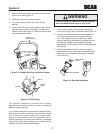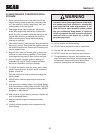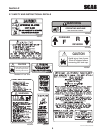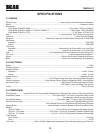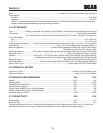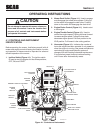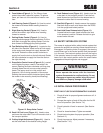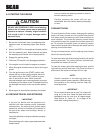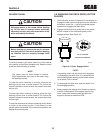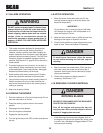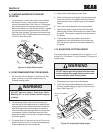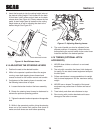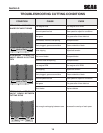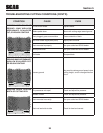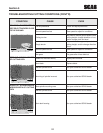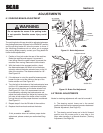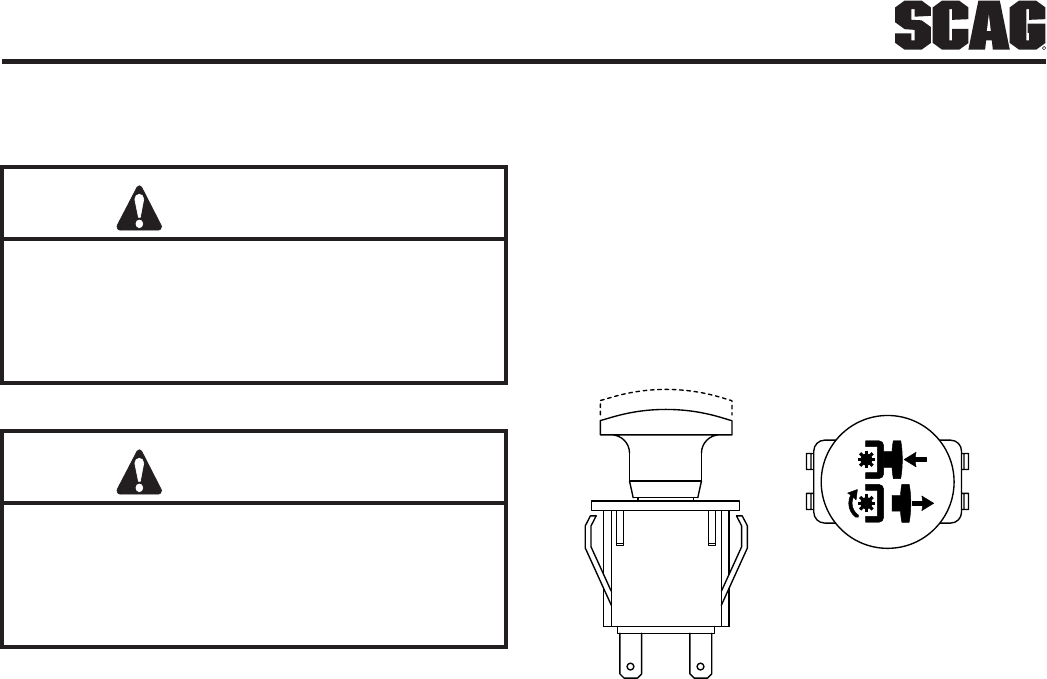
15
R
Section 4
REVERSE TRAVEL
CAUTION
Disengage power to the mower before backing
up. Do not mow in reverse unless absolutely
necessary and then only after observation of the
entire area behind the mower.
CAUTION
Before backing up, observe the rear for persons
and obstructions. Clear the area before backing
up. Possible injury or property damage could
occur.
To travel in reverse, pull levers inward out of the neutral
lock position and pull both handles back. Keep the travel
speed low while traveling in reverse.
- NOTE -
The mower may not travel straight in reverse.
Slight adjustments may need to be made using
the steering controls.
To steer left while traveling in reverse, allow the left
steering control lever to move forward. The further the
control is allowed to move forward, the quicker the mower
will turn left.
To steer right while traveling in reverse, allow the right
steering control lever to move forward. The further the
control is allowed to move forward, the quicker the mower
will turn right.
To stop the reverse travel, allow the steering control levers
to return to the neutral position. If the mower is to be
parked, place the handles in the neutral lock position and
engage the parking brake.
ENGAGING THE DECK DRIVE (CUTTER 4.6
BLADES)
Set the throttle at about 3/4 speed. Do not attempt to 1.
engage the deck drive at high speed as this shortens
the electric clutch life — use only moderate engine
speed when engaging the deck drive.
Engage the deck drive by pulling out on the yellow 2.
switch, located on the instrument panel, to the
engage position. See Figure 4-3.
390S0138
PULL UP TO ENGAGE
PUSH DOWN TO DISENGAGE
Cutter Engage SwitchFigure 4-3.
- NOTE -
A squealing noise may be heard when engaging
or disengaging the deck drive. It is caused by the
electric clutch plates meshing as the mower comes
up to speed. This is normal.
To disengage the deck drive, push the switch in to 3.
the disengage position.
Always operate the engine at full throttle to properly 4.
maintain cutting speed. If the engine starts to lug
down, reduce the forward speed and allow the
engine to operate at maximum RPM.



